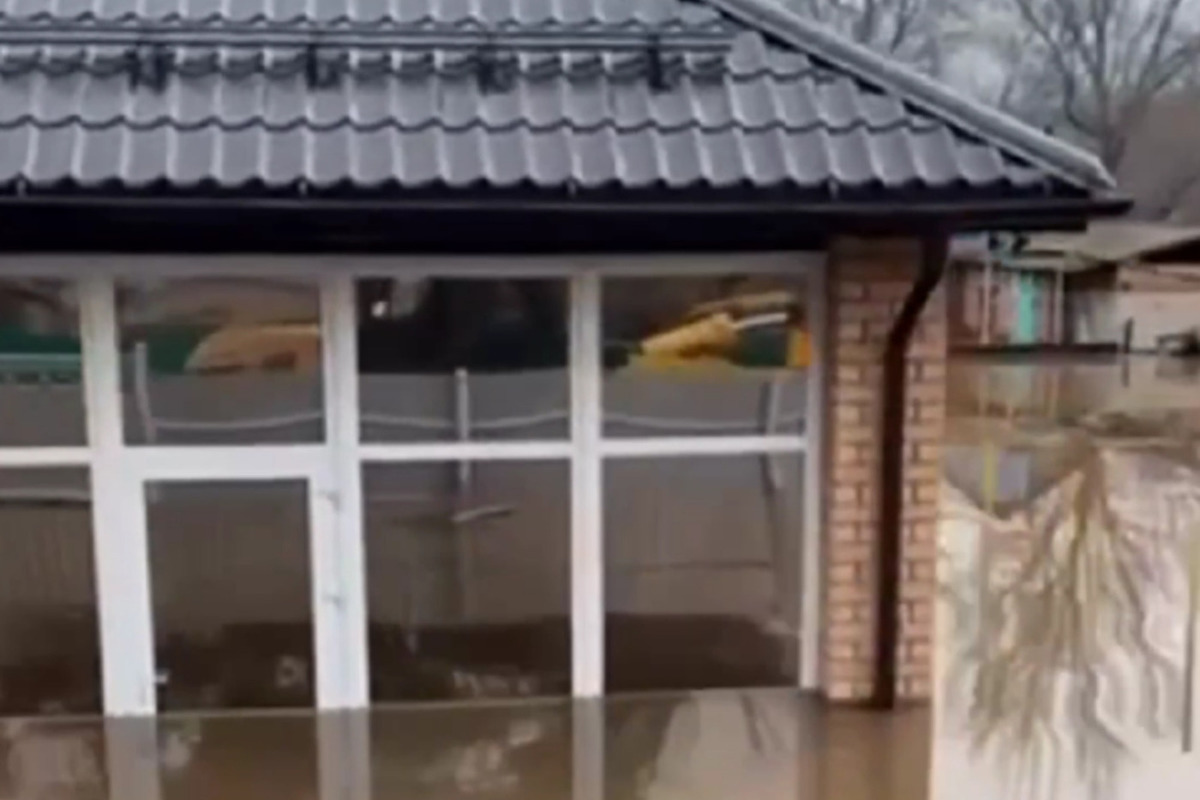“It’s scary to imagine what will happen”: a volunteer from Orsk revealed details of the evacuation of people due to a dam break
[ad_1]

“The water came in a wave, the dam that protected the city from the Ural River broke,” says Orsk resident Alexey Kovalenko. — On April 4, our mayor and his deputy for housing and communal services walked along the dam and assured residents that everything was fine and there was nothing to fear. And on the night from April 5th to 6th, the dam broke and water rushed towards the private sector. And, accordingly, all the houses there were flooded right up to the roof. A breakthrough occurred in several more places, and the city began to drown with multi-story buildings. And only after that the evacuation was announced.
As our interlocutor says, residents of Orsk are outraged that a high-ranking official who arrived from Moscow said in an interview that the evacuation was announced a week before all these events.
– This is a complete lie. Thousands of city residents can confirm this.
— Which areas of Orsk suffered the most?
— The Old Town, the Stroiteley village, the Workers’ village were badly damaged, and the Second Section was affected. The village of Pervomaisky is also floating now – it’s completely under water. All gardens and dachas were washed away. They were located mainly along the Urals. Now the Timber Trade Village has begun to be evacuated, and the dam there has also begun to be washed away.
Alexey says that all the fishermen who had boats and wading boots, without hesitation, began to help evacuate people.
— A lot of volunteers responded. Without them, rescuers from the Ministry of Emergency Situations and the police would not have been able to take out so many people at once.
Alexey, who was also among the volunteers, says that the most difficult thing was to get out the disabled elderly and disabled people.
“Many at first refused to evacuate and leave by boat. During the day people were not so afraid. And at night, when the water was splashing all around, they began to call in panic: “Save, help!” But it’s much more difficult for us to work in the dark and climb through flooded yards. The water is dirty, you can’t see where you can step, the boat can be damaged in three seconds.
A lot of problems, as Alexey says, were caused by those who liked to drink heavily and heavily.
“They refused to leave their homes. Then at night they started to freeze because there was no heating. To keep warm, they lit fires right in the attics. Yesterday two private houses burned down. We floated past – a terrible picture: the lower part of the house was standing in the water, and the upper part was all burnt out.
According to our interlocutor, people also refused to leave their homes because of the looters.
“I know that in the private sector several houses have already been looted.
Volunteers also tried to take the cats and dogs that were on the roofs out on the boats.
— They didn’t swim near fighting breeds. They were then rescued by dog handlers. Many owners’ pets drowned – rabbits and chickens that were locked in cages and barns.
As Alexey says, the dirt in the city is incredible now. Water mixed with sewage, machine oil, gasoline, cesspools and garbage dumps were washed away…
“It’s scary to imagine what will happen later when the water subsides.” There will be dampness and rot all around, and there will be animal corpses in the yards. Everyone’s basements are now flooded, and much of the equipment, heating and electricity distribution units are located there. All this will need to be changed. These are huge volumes. Not to mention the fact that many people’s property will become unusable and electronic equipment will fail.
As our interlocutor says, the scale of the disaster is unexpected and enormous. Now the water has begun to subside a little. Overnight her level dropped by 5-7 centimeters.
— In flooded areas, communications and the Internet have dropped. The towers are de-energized.
Alexey is engaged in the design of heat and gas supply and ventilation systems. But now, together with other volunteers, he continues to ply the boat between houses in case someone wants to leave the flooded areas.
– How are people holding up? Are many people desperate?
— People, of course, are very worried, but they behave normally. There are also those who panic. These are mostly older women. One of the grandmothers, who lives on the 7th floor, called us and asked us to put the TV on the closet. So that it doesn’t get flooded.
Our interlocutor says that in all the 38 years that he has lived in Orsk, he does not remember such a disaster.
— Old-timers recalled the devastating flood in 1957. (Eyewitnesses said that the Urals then rose 12 meters, the water was rising rapidly, people woke up from the splash of waves on the walls of houses, furniture, logs, and fences were floating along the streets. – Auth.) And then the great disaster happened again.
Alexey asks not to call him, like other volunteers, heroes. “There are people and human actions here,” says our interlocutor.
[ad_2]
Source link








